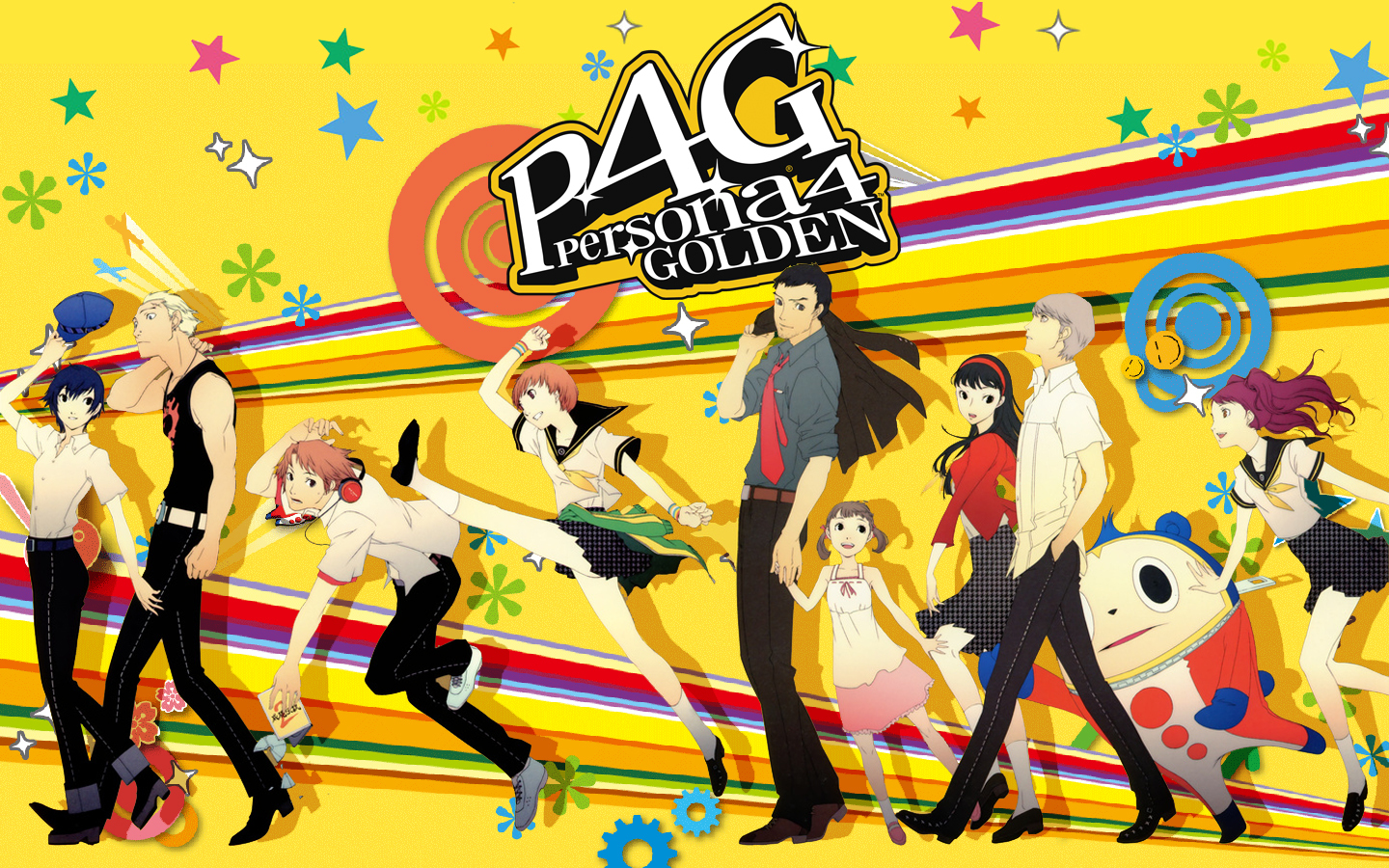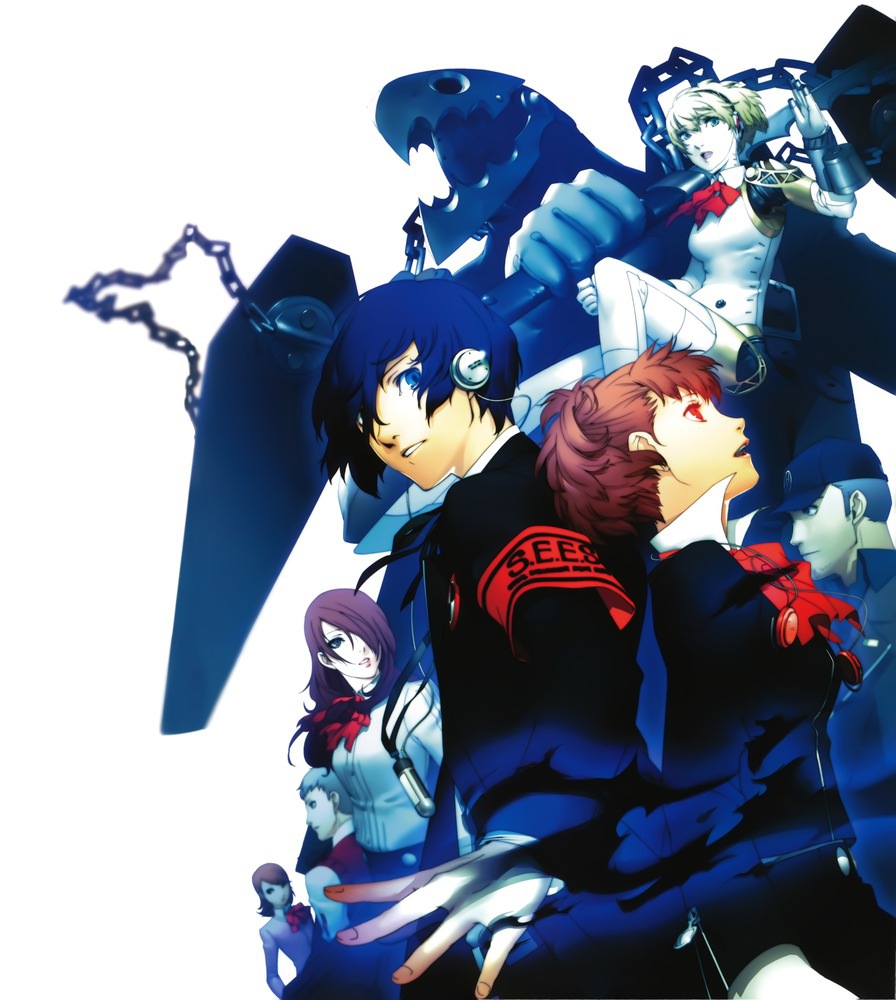We Are Living Our Lives: Persona and World-building

Heads up: There are some minor Persona 4/Persona 4 Golden and Persona 3 Portable spoilers in the images below, but much more so in the sites from whence they came. You’ve been warned!
I have so many games to play. My backlog is daunting for each console I have, as I’m in the bad habit of buying without having time to play, a problem naturally aggravated by entering graduate school while still following gaming release schedules. So on those rare days that I have hours to spend on a game, I think about all the games I ought to get to… and then I boot up Persona 4 Golden.

One of the last games I really undertook was Persona 4 on PS2, clocking in at around 100 hours spent in Inaba. I loved it, and my friends who were watching me play loved it— enough to ask for updates from sessions they missed. This summer I got a Vita with P4G, and my fate was sealed. Back to Inaba I go, no matter how many worlds await me elsewhere. One of the games I picked up recently is Persona 4 Arena Ultimax, and although I am massively terrible at 2D fighters (wowzers, like, super horrible. Too many years of Soul Blade/Calibur means I can’t seem to break those 8-way habits), I just can’t pass up another chance to hang out in P4’s world. I had a similar experience several summers ago, in which I spent well over 100 hours staring at my PSP screen, absolutely engrossed in Persona 3 Portable. And for a few days now I’ve been listening to the P3 soundtrack and have been contemplating another playthrough there.

Right, so, I like these games. There’s something about them, that pull that Jesper Juul mentions. Part of that is the itch of the more traditional gameplay; I love a good, tough, dungeon-crawling, turn-based JRPG, as the genre gives me a fun way to exercise many of the thought processes that are useful to me as I go through grad school (I’ll save an explanation of that for another time). Even more powerful than that, though, are the other parts of the game, the time spent deciding if I’ll hang out with my buddy Yosuke, or which girl I’ll flirt with this playthrough (an interesting bit for the performance of gender, which could be yet another post), or if I’ll study early to get ahead in school, or if we’ll go train in the dungeon as that last boss was really hard, etc. I can’t wait to see the other characters, the ones this iteration of the main character (Yu Narukami in canon, Felix Kazumi for me) has yet to meet but of whom I have fond memories. These moments and memories were there for P3 as well, and I’ll certainly own up to both digital and non-digital crushes on Akihiko when I played a few years back. (Atlus, if you’re out there listening: having a choice of gender in P3 Portable was amazing. More please.) Couple that with the brilliant, unique visual and aural aesthetics of each, and we have me plugging in hundreds of hours… again.

Thus, what I really, really love about these games, and likely all of the games I consider favorites, are the worlds built within. I am a player of the exploration persuasion, so I love diving in and finding out as much as I can about a game world. Give me that lore, those character backstories, the nooks and crannies, the little touches and the overarching drivers that make a game world an experience. I share this fascination with fans of other media as well. I recently listened to a couple of fans’ retelling of how the DC Comics universes fit together, and I then had the chance to hear how a former writer for and director of DC sees its characters as transmedia, world-centric phenomena that live and breathe through the settings and situations in which they find themselves. I’ve also heard of detailed theories linking all of the Pixar movies and fan fiction accounts of interpersonal relationships across gaming universes, which reminds me of the stories I made up with the characters of Legend of Mana (which is a great but now lesser known Square entry, by the way). But I’m certainly not the only one who loves finding and creating patterns that imbue a world and its denizens with vibrancy and vitality.
Despite my long history of playing video games, I am just now learning about game design processes, and from what I can tell thus far, sparking that life into a world is an extraordinary difficult undertaking. It’s a combination of successfully designing gameplay mechanics, writing a story and (more crucially) characters (or not as much), and creating an aesthetic, all of which need to be built and harmonized so that a functioning and compelling game results.
But those results are magical things: games which have your audience invested to the point of sincere laughter and tears, to the sense of imagining themselves as a part of that world. Playing Persona 4 not only sees me smiling in the tender moments of virtual friendships, but it also sees me wondering what shape my own Persona would take, or, in other words, how the darker side of me I hide from others that, when understood as perhaps a weakness but nevertheless a part of the whole that is me, would become the strength that shields my friends.

This is a powerful mode of self-reflection, one that I think is most possible and potent through an emotional buy-in to a richly detailed world. This works well in several forms of media, with literature, comics, and television shows springing first to mind, but my deepest experiences as an explorer and creator of worlds have been through games and the investment of thought, actions, and time that they elicit. For that, the medium will always hold fascination and inspiration for me.
What inspires you about games? What is that pull that keeps you playing? Which games have stayed with you the most? I’d love to see some tweets about the best and most beautiful of gaming, so hop on that Twitterscape! Thanks for reading.

